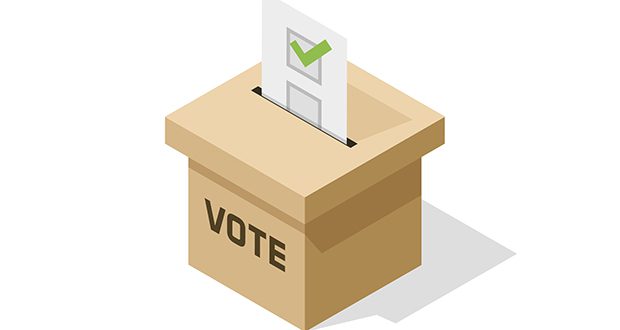From a political point of view, a series of elections often marred by violence have set the pace for the year 2020, despite the Covid-19 pandemic in Africa.
The second round in Niger between Mohamed Bazoum and Mahamane Ousmane as well as the re-election of Faustin Archange Touadéra in the Central African Republic (CAR) bring to a close a politically charged year on the continent.
In the Sahelian country, many people around the world welcomed the decision of the incumbent president, Mahamadou Issoufou, to respect the Constitution by sticking to his two terms.
His runner-up Bazoum, candidate for power, indicated that he wants to be part of the “continuity” if elected. But he will not carry out the promised “K.O. blow” against 29 opposition candidates including former president Mahamane Ousmane. At the end of the first round organised on December 27, he received 39 percent of the votes against 17 percent for Ousmane. They will be decided on February 21 during the run-off election.
In the Central African Republic, Faustin Archange Touadéra was re-elected with 53.92 percent of the votes. Despite the current security situation caused by rebel movements in the country, 76 percent of voters turned out to vote.
In 2020, the citizens of Togo, Burundi, Burkina Faso, Guinea, Cote d’Ivoire and Ghana also fulfilled their civic duty. Not without some clashes and disputes. First in Togo, on February 22, Faure Gnassingbé was widely re-elected for a fourth term with 72.36 percent of the votes cast and 18.37 percent for the leader of the opposition, Agbéyomé Kodjo. The latter denounced fraud and claimed victory. He was arrested in April, before being released and placed under judicial supervision.
Violent re-elections
In Burundi, General Evariste Ndayishimiye succeeded President Pierre Nkurunziza on May 25, who had decided not to run for a fourth term. Nkurunziza died of a heart attack on June 8 just a few days after the presidential election was held.
In Guinea and Cote d’Ivoire, the re-elections for a third term of Alpha Condé and Alassane Ouattara in October were conducted violently. For months, the Guinean opposition, led by Cellou Dalein Diallo, mobilised against this prospect. But the protest, launched in October 2019, was harshly repressed. Amnesty noted that “at least 50 people” were killed during the protests.
For Cote d’Ivoire, Human Rights Watch reported that “more than 50 people have been killed since the presidential election.” The death in July of Prime Minister Amadou Gon Coulibaly, the then candidate for president, prompted Ouattara to turn the country around. He invoked “force majeure” and “civic duty.” Despite strong protests, he will be re-elected in the first round with 94.27 percent of the votes in an election boycotted by the opposition.
In Burkina Faso, the re-election of Roch Marc Christian Kaboré in the first round caused less tension. His main opponents, such as Zéphirin Diabré, congratulated him after the election.
In Ghana, Nana Akufo-Addo was re-elected in December for a second term. After a close fight, he defeated his historic opponent John Mahama, whom he was facing for the third time. Mahama announced that he was contesting the results, despite the country being considered a model of democracy in Africa.
The fall of IBK
The overthrow of Malian President Ibrahim Boubacar Keïta is one of the key events in 2020. After several months of civil protests, the military seized power before forcing him to resign on the night of August 19.
The mutiny, which started from the military base at Kati, was led by Colonel Assimi Goïta, thus aggravating the crisis in which the country was plunged when faced with the jihadist threat. Together with other officers, Goïta formed the National Committee for the Salvation of the People (CNSP). But under pressure from the international community, the military finally handed over power, between September and October, to an interim government. It is supposed to lead the country for 18 months before elections are held. A month after the coup, former Defense Minister Bah Ndaw was appointed interim president of Mali.
The year 2020 in this West African country also means the release of hostages, including Soumaïla Cissé last October. The opposition leader was kidnapped on March 25 while campaigning for the local elections in his stronghold of Niafounké.
But the former president of the Commission of the West African Economic and Monetary Union (UEMOA) died of Covid-19 on December 25 in France, where he had been transferred for treatment. Other prominent Malian political figures also died. This is the case of former presidents Moussa Traoré and Amadou Toumani Touré.
Ethiopian conflict
Prime Minister Abiy Ahmed launched a military operation on November 4 against the Tigray People’s Liberation Front (TPLF), a semi-autonomous region in the north of the country. The conflict arose out of Ahmed’s desire to put an end, in 2019, to the ethnocentric political system in force since 1994. This situation caused the Ethiopian government to weaken the position of the Tigrayan ethnic group led by the TPLF.
Refusing its integration into the Prime Minister’s Welfare Party, the TPLF conducted separate elections before entering into rebellion. But after several weeks of fighting, the Ethiopian government claimed on November 28 that it had regained control of Tigray, including its capital Mekele.
ODL/id/te/lb/abj/APA


